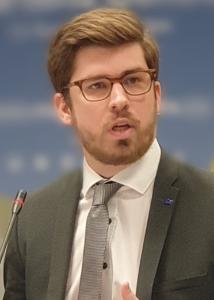Executive summary
The Mediterranean region has a historic opportunity to transform its energy landscape and economy through coordinated development of its vast renewable energy potential. With current renewable capacity at 300 GW, the region is well-positioned to achieve the goal of the new TeraMED initiative to reach 1 TW of renewable energy capacity by 2030.
Reaching this target will require approximately €120 billion in annual investments, but could generate an estimated €320 billion in economic growth and create 3 million jobs in the renewable energy supply chain. Crucially, it also offers an opportunity to develop integrated clean technology manufacturing capabilities that enhance the EU's strategic autonomy while fostering economic development in Southern Mediterranean partner countries.
Success requires the European Commission to take immediate action to establish a comprehensive policy framework spanning regulatory harmonization, infrastructure development, industrial policy, and incentives. Key measures should include:
- Expanding the Projects of Common Interest framework to include Southern Mediterranean energy projects and strengthening the mandate of MED-TSO to coordinate grid integration.
- Launching a Mediterranean Clean Technology Manufacturing Initiative to leverage existing industrial capabilities and support the development of integrated renewable energy supply chains across the region.
- Implementing a comprehensive incentive framework, including establishing a Clean Technology Innovation Fund.
- Empowering regional institutions such as MEDREG, RCREEE, and the UfM to lead on renewable energy deployment, technical assistance, capacity building, and high-level coordination, rather than creating new organizations.
By taking decisive action now, the Commission can position the Mediterranean as a leader in renewable energy while creating transformative economic opportunities on both shores. Renewable energy development, embedded within a broader partnership focused on investment, stability, and security, can strengthen EU-Mediterranean relations and enhance the EU's strategic position. The potential economic and geopolitical benefits justify a major investment of E political capital and resources in this initiative
The Mediterranean Renewable Opportunity
The Mediterranean region stands at the cusp of an energy revolution. In 2022 its renewable energy capacity was just under 300 GW, well below the region's potential. The TeraMED initiative's goal of 1 TW by 2030 provides a framework for transformation that could generate €320 billion in economic growth and create 3 million jobs. The region's complementary strengths make this target achievable. Northern Mediterranean countries possess advanced technological capabilities and robust financial markets, while Southern Mediterranean nations offer abundant renewable resources and growing industrial bases. Morocco and Egypt have already demonstrated some success in renewable deployment, with Morocco aiming for 52% renewable capacity in its electricity mix by 2030 and Egypt setting a target of 42% renewables by the same date.
Achieving 1 TW: Infrastructure and Integration
Current interconnection capacity between the two shores remains limited to 2 submarine electrical cables between Spain and Morocco, with a capacity of 900 MW in the Spain-Morocco direction and 600 MW in the Morocco-Spain one.
The Med-TSO Masterplan has identified 19 key interconnection projects across five strategic corridors.
- Western Mediterranean Corridor (Algeria, Morocco, Portugal, Spain)
- Central Mediterranean corridor & North Africa Backbone (Algeria, Egypt, Italy, Libya, Tunisia)
- East Mediterranean interconnectors (Cyprus, Egypt, Greece, Israel, Türkiye)
- Eastern Balkan corridor (Bulgaria, Italy, Greece, Türkiye)
- Middle East Mediterranean Integration (Egypt, Jordan, Palestine, Syria, Türkiye)
This planned infrastructure provides the backbone for a truly integrated Mediterranean renewable energy market. Several projects are already advancing. The ELMED interconnector between Tunisia and Italy for example, will have a capacity of 600 MW and is supported by €307 million in EU funding through the Connecting Europe Facility. This demonstrates how targeted support can accelerate critical infrastructure. Two additional subsea interconnects are also being planned between Egypt and Greece (GREGY) and between Israel, Cyprus, and Greece (the Great Sea).
To create a truly integrated Mediterranean grid, the Commission must take decisive action. First, the Projects of Common Interest framework should be expanded to include Southern Mediterranean projects.
The Commission should strengthen MED-TSO's mandate and resources to serve as the technical coordinator for grid integration, working closely with DG-ENER and national transmission operators. MED-TSO's existing Master Plan, which identifies 19 key interconnection project across five strategic corridors, provides the technical foundation for grid integration. Th Commission should support MED-TSO in:
- Accelerating implementation of identified priority interconnection
- Harmonizing grid codes and operational procedures
- Developing common frameworks for cross-border power trading
- Coordinating renewable energy integration studies
Leveraging Regional Industrial Strengths for Clean Tech Manufacturing
The region possesses significant industrial capabilities that can be redirected toward clean technology manufacturing. Morocco's established automotive sector employs 220,000 workers, while Egypt's manufacturing base includes over 9,000 chemical companies and 17,000 firms in the non-ferrous metal sector. These existing capabilities can be leveraged to create integrated supply chains for renewable energy equipment.
The Commission should establish a Mediterranean Clean Technology Manufacturing Initiative that provides technical assistance and funding for industrial conversion. This could include support for:
- Upgrading automotive plants to also produce electric vehicle and wind turbine components
- Upgrading chemical facilities to produce advanced materials for solar panels and energy storage systems.
- Developing battery and energy storage manufacturing capabilities
- Creating testing and certification facilities for clean technology product
The Commission should work through RCREEE and RES4Med's existing programs to support industrial development:
- Leverage RCREEE's technical expertise in renewable energy deployment to guide manufacturing capabilities development
- Use RES4Med's public-private dialogue platform to facilitate industry partnerships
- Build on MEDENER's experience in energy efficiency to support industrial modernization Partner with testing facilities and certification bodies rather than creating new ones
Incentivizing Investment and Innovation
To attract investment and support industrial development, the Commission should implement a comprehensive incentive framework. Companies establishing clean technology manufacturing in the region should receive expedited permitting and targeted financial support through the Globa Gateway initiative.
The Commission should also establish a Mediterranean Clean Technology Innovation Fund to support research and development collaboration between EU and Mediterranean institutions. This would help create lasting technological partnerships while building regional innovation capabilities.
Forging Interdependent Clean Energy Value Chains
The clean technology sector offers unique opportunities for creating beneficial economic interdependencies and integrated value chains across both shores of the Mediterranean. By establishing joint research and development facilities, shared technical standards and certification systems, and cross-border innovation clusters, the region can create lasting economic ties that enhance stability.
For example, raw materials from Southern Mediterranean countries could feed into a distributed network of manufacturing facilities across the region, with component
production allocated based on existing industrial capabilities and final assembly and testing occurring near major markets o shipping hubs.
These measures will create a framework for the development of interdependent, cross-border value chains that leverage the complementary strengths of different countries while fostering lasting economic partnerships. This approach embeds clean energy cooperation within a broader agenda of regional economic integration and development
Harmonizing Regulations and Empowering Institutions
Creating an integrated Mediterranean renewable energy market requires addressing significant regulatory divergences. The Commission should strengthen MEDREG's role as the primary platform for regulatory convergence, expanding its technical assistance capabilities, supporting the development of common regulatory frameworks, and funding capacity building programs.
- The EU Commission should also take concrete actions to strengthen existing institutions:
- Expand MEDREG's mandate to include renewable energy integration
- Support MED-TSO's implementation of cross-border infrastructure projects
- Enhance RCREEE's capacity for technical assistance and training
- Strengthen the UfM's role in high-level coordination
Rather than creating new bodies, the above institutions should be empowered to coordinate renewable energy deployment, develop technical standards, implement workforce development programs, and manage cross-border projects. The Commission should develop a comprehensive investment framework leveraging multiple funding sources, such as establishing a dedicated Mediterranean Renewable Energy financing facility through the European Investment Bank and prioritizing clean technology manufacturing projects through the Global Gateway initiative.
Fostering Mediterranean Innovation Ecosystems
The development of specialized renewable energy innovation clusters across the Mediterranean can accelerate technology development while creating lasting collaborative networks. Successful models already exist, such as Morocco's Institute for Research in Solar Energy and New Energies (IRESEN). The Commission should support the expansion of these initiatives through:
- The establishment of a Mediterranean Clean Technology Research Network linking institutions across both shores. This network would facilitate knowledge transfer and joint research projects, with particular focus on adapting technologies to Mediterranean conditions.
- Creation of specialized testing and certification centers for renewable energy equipment that can serve the entire region. These centers would ensure quality standards while building technical expertise in Southern Mediterranean countries
Coordinating Strategic Implementation Partnerships
Success requires implementing these initiatives through structured partnerships that engage directly with local communities, create reliable regulatory frameworks, deploy an integrated approach linking various policies, support good governance, and establish regular progress monitoring. The Commission will coordinate implementation through the new Directorate General for the Mediterranean, regular structured dialogues, integration with the Global Gateway initiative, and close cooperation with other Commission services on related priorities.
The Mediterranean region benefits from several established energy cooperation frameworks that should be central to implementation:
- Technical Cooperation: MEDENER's network for capacity building, RCREEE's expertise for technical assistance, and RES4Med's platform for public-private dialogue
- Research & Innovation: MedECC's scientific network for technical standards, the propose Innovation Fund working through existing institutions, and joint research programs building on established collaboration frameworks
- Project Implementation: The Union for the Mediterranean as the high-level coordinator, Global Gateway investments channeled through existing project preparation facilities, and IRENA and IEA technical assistance integrated into implementation plans
This structured approach, leveraging existing regional institutions, will ensure renewable energy development contributes to broader goals of shared prosperity and security while countering antiEU narratives through demonstrated benefits to local communities
Conclusion: Renewable Energy as the Foundation for a New Mediterranean Partnership
This comprehensive approach to renewable energy development, embedded within the New Pact for the Mediterranean, offers a pathway to transform EU-Mediterranean relations. By linking clean energy deployment to broader cooperation on investment, security, and good governance, we can create lasting partnerships based on shared values and mutual interests. Success requires sustained engagement with local communities, reliable regulatory frameworks, and integration with other strategic initiatives. Through this approach, renewable energy can serve as a cornerstone of a strengthened Mediterranean partnership that delivers sustainable prosperity and security for all.
Über diese Reihe
„Europäische Union Klima und Energie“ ist eine Rubrik mit einer Reihe von Berichten und anderen Veröffentlichungen, die Einblick in die Ziele der EU im Bereich der Klima- und Energiepolitik geben. Jede Publikation in dieser Reihe konzentriert sich entweder auf das globale Engagement der EU für eine nachhaltige Klima- und Energiepolitik oder darauf, wie sich Klima- und Energieziele von Partnerländern auf die EU auswirken. Diese Reihe soll ein umfassendes Verständnis der EU-Strategien im Bereich der nachhaltigen Energiekooperation, der Anpassung an den Klimawandel und dessen Eindämmung sowie ihrer Partnerschaftspolitik im Bereich Klima und Energie vermitteln.

Nicole Linsenbold





